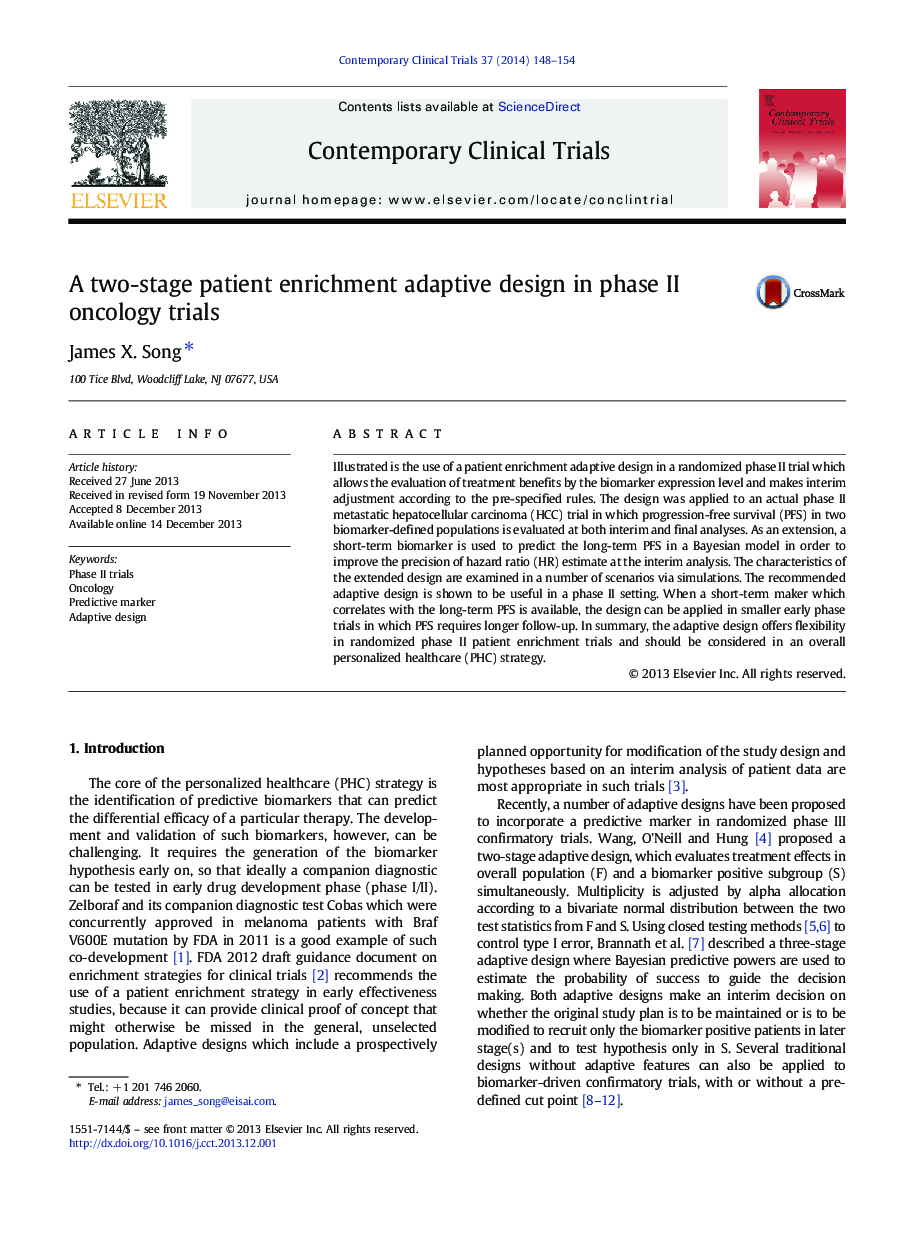| Article ID | Journal | Published Year | Pages | File Type |
|---|---|---|---|---|
| 3462810 | Contemporary Clinical Trials | 2014 | 7 Pages |
Illustrated is the use of a patient enrichment adaptive design in a randomized phase II trial which allows the evaluation of treatment benefits by the biomarker expression level and makes interim adjustment according to the pre-specified rules. The design was applied to an actual phase II metastatic hepatocellular carcinoma (HCC) trial in which progression-free survival (PFS) in two biomarker-defined populations is evaluated at both interim and final analyses. As an extension, a short-term biomarker is used to predict the long-term PFS in a Bayesian model in order to improve the precision of hazard ratio (HR) estimate at the interim analysis. The characteristics of the extended design are examined in a number of scenarios via simulations. The recommended adaptive design is shown to be useful in a phase II setting. When a short-term maker which correlates with the long-term PFS is available, the design can be applied in smaller early phase trials in which PFS requires longer follow-up. In summary, the adaptive design offers flexibility in randomized phase II patient enrichment trials and should be considered in an overall personalized healthcare (PHC) strategy.
